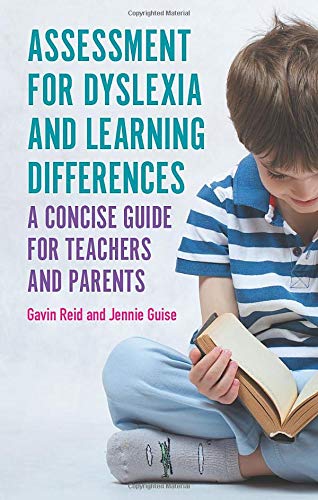From the start, Jennie considers each individual’s needs and ensures people are at ease. She works sensitively with people so that she can advise them how to manage the challenges of dyslexia and other learning difficulties.
Jennie carries out a full cognitive assessment, and then provides a detailed and comprehensive report. This report explains the tests used in that particular assessment, all scores obtained and a clear and helpful interpretation of them which identifies where to target support. This opens up a positive way forward for future learning.
Why a cognitive assessment?
Cognitive means to do with the way we think. A cognitive assessment provides a profile of strengths and weaknesses. It compares a person’s scores for verbal comprehension, perceptual organisation (visual-spatial skills), short-term memory and speed of processing.
Screening tests can be used to see if a person’s abilities in spelling, reading, writing or maths are at the level that might be expected for his or her age group. A full cognitive assessment can add to this by providing a baseline that shows that individual’s profile of abilities. It highlights areas of strength (for example, verbal comprehension or visual processing skills), and shows any particular areas of weakness (for example, processing speed or working memory). She can compare an individual’s cognitive scores with their attainment scores, and this highlights learning difficulties. These difficulties are not always obvious from attainment scores alone.
Cognitive tests are only available to qualified Psychologists. They help us to identify the possible roots of specific learning difficulties – like dyslexia or dyspraxia – in people who are apparently managing quite well in class or at work. For example, if a person has a poor short-term memory, or needs more time to process information, then this might affect reading comprehension, or spelling.
A full cognitive profile can also help teachers to appreciate the difficulties that a pupil might have, for example, in remembering information or in working under pressure of time.
Where do the tests take place?
All assessments are done remotely, usually using Zoom. Sometimes, pupils are in school, but often they would be at home. Adults sometimes choose to do their assessment at work, or at home. Jennie is flexible about rest breaks, and is present one-to-one throughout the assessment. The tasks tend to be quite short, and varied. The person being assessed needs:
-
-
-
- use of a room on his or her own (a parent or teacher can be nearby)
- no interruptions or distractions
- a laptop, computer, iPad or tablet (no keyboard is needed)
- desk space or a worktop for writing
- lined, A4 paper
- pens
- headphones if available – these can help sound clarity
-
-
How long does the assessment take?
Assessments are tailored to the individual, so the time taken will vary. The average assessment takes around three and a half hours.
How long does the report take?
The report is normally completed within three weeks of the assessment. In urgent cases, we always try our best to accommodate an earlier deadline.

